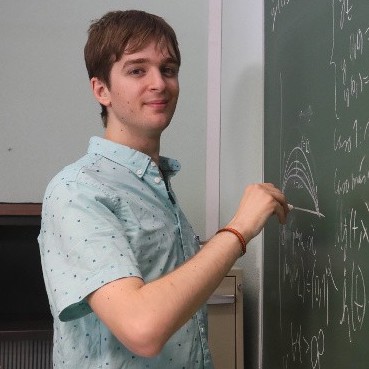RSMEren Ikertzaile Gazteen VII. Kongresuan, zazpi hitzaldi nagusiak nazio eta nazioarteko izen handiko matematikariek emango dituzte. Hitzaldi nagusiak ingelesez izango dira. Hitzaldi nagusi bakoitzak Bilboko Alde Zaharreko zazpi kaleen izena du.
“Goienkale” Hitzaldi Nagusia
Astelehena 13, 11:30
[Bizkaia Aretoaren Mitxelena Entzunaretoa]
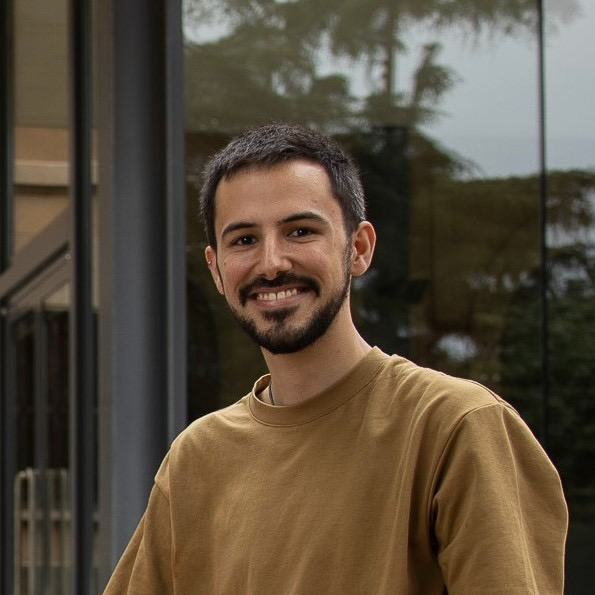
©2023 FBBVA
Robert Cardona
(Universitat de Barcelona)
Geometria eta topologia simplektikoan aditua, arlo horiek dinamika eta hidrodinamika kontserbatzaileekin duten elkarrekintzan zentratuta bereziki.
Profesor Lector Universitat de Barcelona-n, 2023etik. Vicent Caselles Saria 2023; eta Évariste Galois Saria 2019. Doktoratu ondoko Ikertzailea Instituto de Ciencias Matemáticas-ean, 2022-2023. Doktoratu ondoko Ikertzailea Université de Strasbourg-ean, 2021-2022. Doktoregoa Universitat Politècnica de Catalunya-n (UPC), 2021; Máster en Matemática Avanzada e Ingeniería Matemáticafrom UPCn, 2018; eta Grado en Matemáticas UPCn, 2017.
Topologia sinplektioa, dinamika, eta fluido idealak
Originating in the works of Poincaré at the end of the XIX century, dynamical systems and symplectic (and contact) topology are two disciplines of mathematics that first developed in a rather independent way. In the last two decades, "Symplectic dynamics" has become a flourishing new field on its own that integrates ideas of these two classical disciplines. In this talk, we first give an accessible overview of some ideas and recent developments in this theory. We will explore its connections to hydrodynamics, and propose a new framework that links contact topology and symplectic dynamics to the study of the time-dependent Euler equations for ideal fluid motion on three-manifolds. The latter is based on joint work with Francisco Torres de Lizaur.
MSC Kodigoak: 57K43; 57K33; 37J06; 35Q31
“Artekale” Hitzaldi Nagusia
Asteartea 14, 9:30
[UPV/EHUren Areto Nagusia]
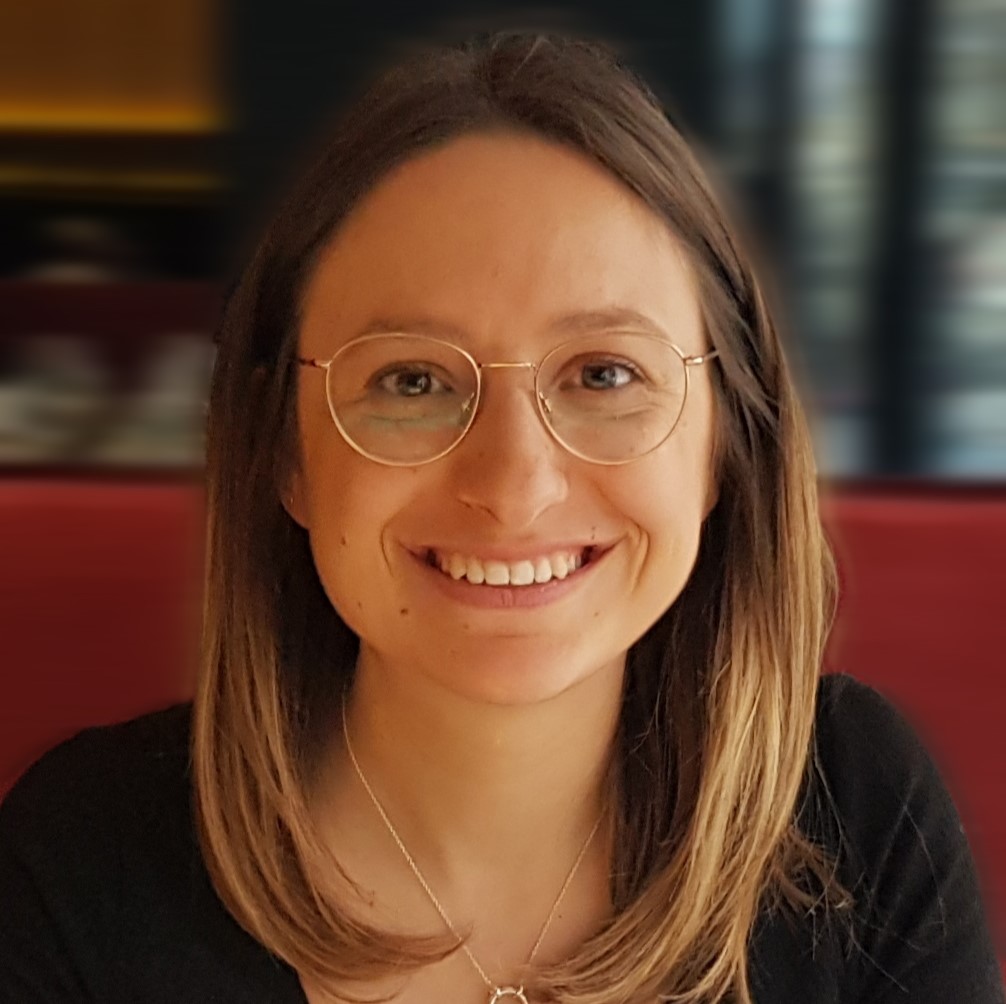
©2023 Marina Leal Palazón
Marina Leal Palazón
(Universidad Miguel Hernández)
Ikerketa operatiboan aditua, optimizazio oso mistoko arazoetan zentratuta bereziki.
Irakasle Laguntzaile Doktorea Universidad Miguel Hernández de Elche-n eta Ikertzailea unibertsitate horrren CIO institutuan, 2020tik. Doktoratu ondoko Ikertzailea Universität Trier-an (Alemania), 2019-2020. Doktoregoa Universidad de Sevilla-n, 2019, Sari Bereziarekin; Máster en Matemática Avanzada Universidad de Murcia-n, 2014; eta Licenciatura en Matemáticas Universidad de Alicante-n, 2013.
Optimizazio matematikoa gainbegiratu gabeko ikaskuntzarako, datuz beteriko mundu batean
Decision-making is present in many areas such as location, planning, network design, finance, transport, and more. Making good decisions (ideally, the best ones) is crucial in these fields. In decision processes, Operations Research (OR) offers the theories and tools needed to make better decisions. Among all the theories in OR, Mathematical Optimization leads to optimal choices. Since we live in a data-driven world, many decisions today involve the use of data. Clustering is a data analysis technique used to identify groups or clusters within a dataset, serving as a key tool to facilitate the decision-making process in various areas. Hierarchical clustering is a clustering method that builds a hierarchy of groups. It groups data points into a nested tree of clusters, which is visualized as a dendrogram. Different definitions of the distance between two clusters (known as linkages) lead to different dendrograms. Dendrograms are constructed by running iterative greedy algorithms.
In this talk, three optimization models for hierarchical clustering will be considered. First, the problem of Feature Selection in Single-Linkage Clustering is addressed via Mixed Integer Linear Programming (MILP) formulations. Second, MILP approaches will be developed for computing the purity of a dendrogram. Purity is a measure of the quality of clustering that can be calculated when observations in the data are labeled; it allows for comparing dendrograms. Finally, we will present a formulation for Complete-Linkage clustering.
MSC Kodigoak: 90C05; 90C11; 90C46
“Dendarikale” Hitzaldi Nagusia
Asteazkena 15, 9:00
[Bizkaia Aretoaren Mitxelena Entzunaretoa]
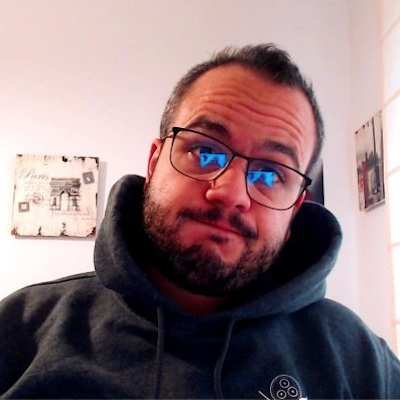
©2022 Javier Álvarez Liébana
Javier Álvarez Liébana
(Universidad Complutense de Madrid)
Estatistikan aditua, denbora-serieetan eta datuen analisi funtzionalean zentratuta bereziki.
Profesor Ayudante Doctor Universidad Complutense de Madrid-an (UCM), 2021tik, Rtarako RTVEren aholkulari eta irakaslea izaten. Analista eta Aholkularia Dirección General de Salud Pública de Asturias-ean, 2020-21. Ordezko Irakaslea Laguntzaile Doktorea Universidad de Oviedo-n, 2018-2021, Juan de la Cierva Formación laguntzarekin. Doktoregoa Universidad de Granada-n, 2018; Máster en Ingeniería Matemática UCMen, 2014; eta Licenciatura en Matemáticas UCMen, 2013.
Alborapen, falazia eta beste hainbat izaki estatistiko
Statistics play a much greater role in our lives than we often realize, especially in the functioning of a democracy. Why are most political leaders born in the early months of the year? What do political campaigns have in common with World War II and traffic accidents? How can a lottery decide your fate in a war? Why was counting taxis crucial for political parties before modern technology? What are the most common errors in conducting phone surveys? How do chance and uncertainty shape our lives? This plenary talk will explore some of the most frequent statistical biases and fallacies that affect us daily.
“Belostikale” Hitzaldi Nagusia
Asteazkena 15, 10:30
[Bizkaia Aretoaren Mitxelena Entzunaretoa]
Jon Asier Bárcena‑Petisco
(UPV/EHU)
Ekuazio diferentzialetan aditua, berauen kontrolagarritasun eta behagarritasunean zentratuta bereziki.
Irakasle Laguntzaile Doktorea UPV/EHUn, 2021etik. Vicent Caselles Saria 2021. Postdoc Universidad Autónoma de Madrid-en, 2020-2021. Doktoregoa Sorbonne Université-n (Frantzia), 2020; Master1 Mathématiques eta Master2 Mathématiques et applications Sorbonne Université-n (Frantzia), 2016 eta 2017; eta Matematikako Gradua UPV/EHUn, 2016.
Beroaren ekuazioaren kontrolagarritasuna Lipschitz domeinuetan
Beroaren ekuazioa ekuazio parabolikorik oinarrizkoena da. Ekuazio horren zeroranzko kontrolabilitatea edozein domeinu $C^2$ frogatu zuten 90ko hamarkadan Fursikov eta Imanuvilov. Halere, problema berbera edozein domeinu Lipschitziarrentzat oraindik dago irekita. Hitzaldi honetan, hasteko, kontrolabilitate eta obserbabilitate nozioak aurkeztuko ditugu, eta nozio dualak direla erakutsiko dugu. Ostean, $C^2$ eremuetarako kontrolabilitate emaitzak frogatzeko ezagutzen diren teknikak azalduko ditugu. Azkenik, eztabaidatuko da eremua $C^2$ klasekoa ez denean beroaren ekuazioa kontrolagarria dela frogatzeko dauden tekniken inguruan. Hau guztia nahiko era elemental batean egingo dugu, Matematika Graduko Analisi Matematikoko nozioa soilik behar izanik.
MSC Kodigoak: 93-02; 93C20; 35K05
“Harategi Zahar Kalea” Hitzaldi Nagusia
Osteguna 16, 9:00
[UPV/EHUren Areto Nagusia]
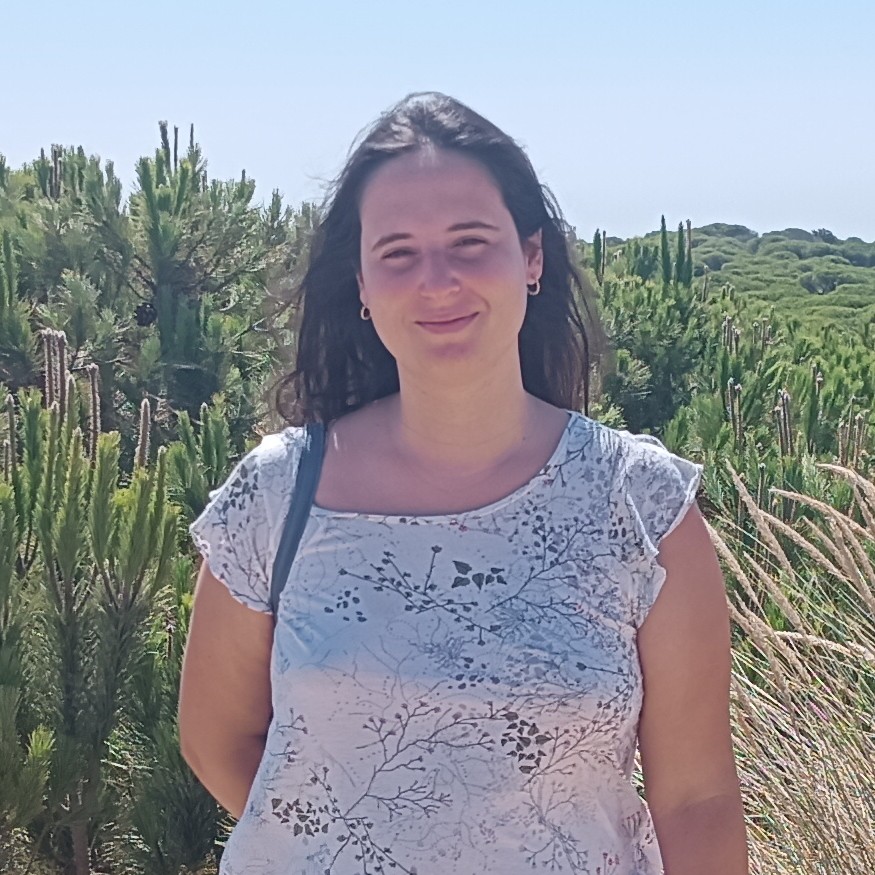
©2023 Ana Cabello Pastor
María Cumplido
(Universidad de Sevilla)
Taldeen teorian aditua, bereziki txirikorda-taldeetan eta artin-taldeetan, metodo konbinatorioetan eta geometrikoetan zentratuta bereziki.
Ramón y Cajal Ikertzailea Universidad de Sevilla-n (US) 2022tik [abendua], "Geometric groups theory: From Cremona groups to braid groups" proiektuaren ikertzaile konagusia izaten. Vicent Caselles Saria 2020. Doktoratu ondoko Ikertzailea USn, 2021 [otsaila]-2022 [azaroa]. Irakasle Laguntzaile Doktorea Universidad Complutense de Madrid-en, 2021 [iraila]-2022 [urtarrila]. Doktoratu ondoko Ikertzailea Herior-Watt University-n (Canada), 2019-2020. Doktoratu ondoko Ikertzailea Université de Bourgogne-n, 2018-2019. Doktoregoa Université de Rennes 1-ean (France) eta USn, 2018 [iraila], Rennes 1 Fondazioak emandako Matematika eta Informazioaren Teknologian 2018 2e prix de thèse-erekin; Máster en Matemática Avanzada USn, 2015; eta Grado en MatemáticasUSn, 2014.
Trentzak, kurbak eta azpitalde parabolikoak
Hitzaldi honen helburua nire ikerketaren objektu nagusiak azaltzea eta horiei buruzko motibazioa ematea da: azpitalde parabolikoak. Txirikordak oso objektu moldagarriak dira, ikuspegi topologiko eta erabat algebraikoan oinarritutako deskribapenak baitituzte. Definizio topologikoarekin, mapping class groups bezalako orokorpenak aurkitzen ditugu, eta definizio aljebraikoarekin, orokorpen garrantzitsuena Artin taldeak dira. Oso gutxi dakigu Artin taldeen inguruan (Dehnen arazo klasikoak oraindik ere irekiak dira oro har). Gehiago jakiteko, estrategia bat da talde topologikoek txirikorda taldearen ekintza azaleran kurben konplexuan nola erabiltzen duten aztertzea, eta hori testuinguru aljebraikora itzultzea. Testuinguru honetan, kurben baliokide aljebraikoak, hain zuzen ere, azpitalde parabolikoak dira. Hitzaldi honetan, azpitalde horiei buruzko galdera irekirik nagusienak eta horiek lantzeko dauden estrategia ezberdinak aztertuko ditugu.
“Barrenkale” Hitzaldi Nagusia
Osteguna 16, 15:00
[UPV/EHUren Areto Nagusia]
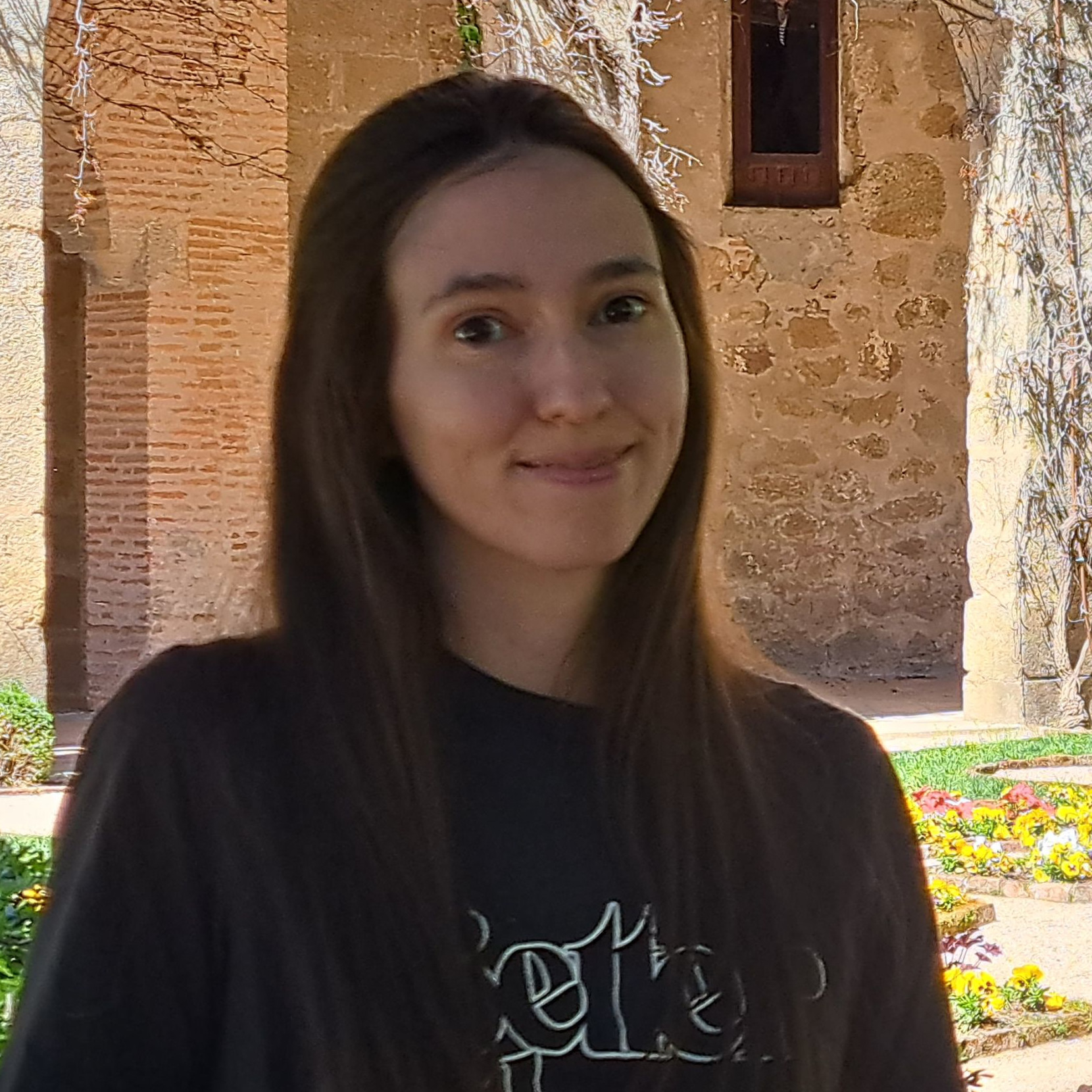
©2023 Francisco Penedo Álvarez
María Inés de Frutos Fernández
(University of Bonn)
Formalizazio matematikoan eta zenbakien teoria aljebraikoan aditua.
Doktoratu ondoko Ikertzailea Margarita Salas Universidad Autónoma de Madrid-en (UAM), 2023tik [otsaila]. Research Associate Imperial College London-en (Erresuma Batua), 2021 [abuztua]-2023 [otsaila]. Irakasle Laguntzaile Doktorea Universidad Nebrija-n, 2021 [apirila-abuztua]. Doktoregoa Boston University-n (BU) (Massachusetts, Estatu Batuak), 2020 [maiatza]; MA in Mathematics BUn, 2018; eta Doble Grado en Matemáticas e Ingeniería Informática UAMen, 2014, Ohorezko Aipamenarekin.
Zenbaki teoriaren formalizazioa Lean-en
Mathematical formalization consists of digitizing mathematical definitions and results using a "proof assistant", a computer program capable of checking whether a proposition can be deduced from a set of inference rules and a collection of basic axioms. In recent years, the community of mathematicians working on formalization has grown rapidly and has reached milestones that demonstrate the ability to formalize results at the frontier of knowledge. Proof assistants have applications to mathematics research, teaching, and communication.
After a brief introduction to formalization, I will present several of my number theory formalization results in the Lean interactive proof assistant, from sub-areas that include class field theory, p-adic Hodge theory, and the theory of Drinfeld modules.
MSC Kodigoak: 68V20; 68V15; 11-XX
“Barrenkale Barrena” Hitzaldi Nagusia
Ostirala 17, 11:30
[UPV/EHUren Areto Nagusia]
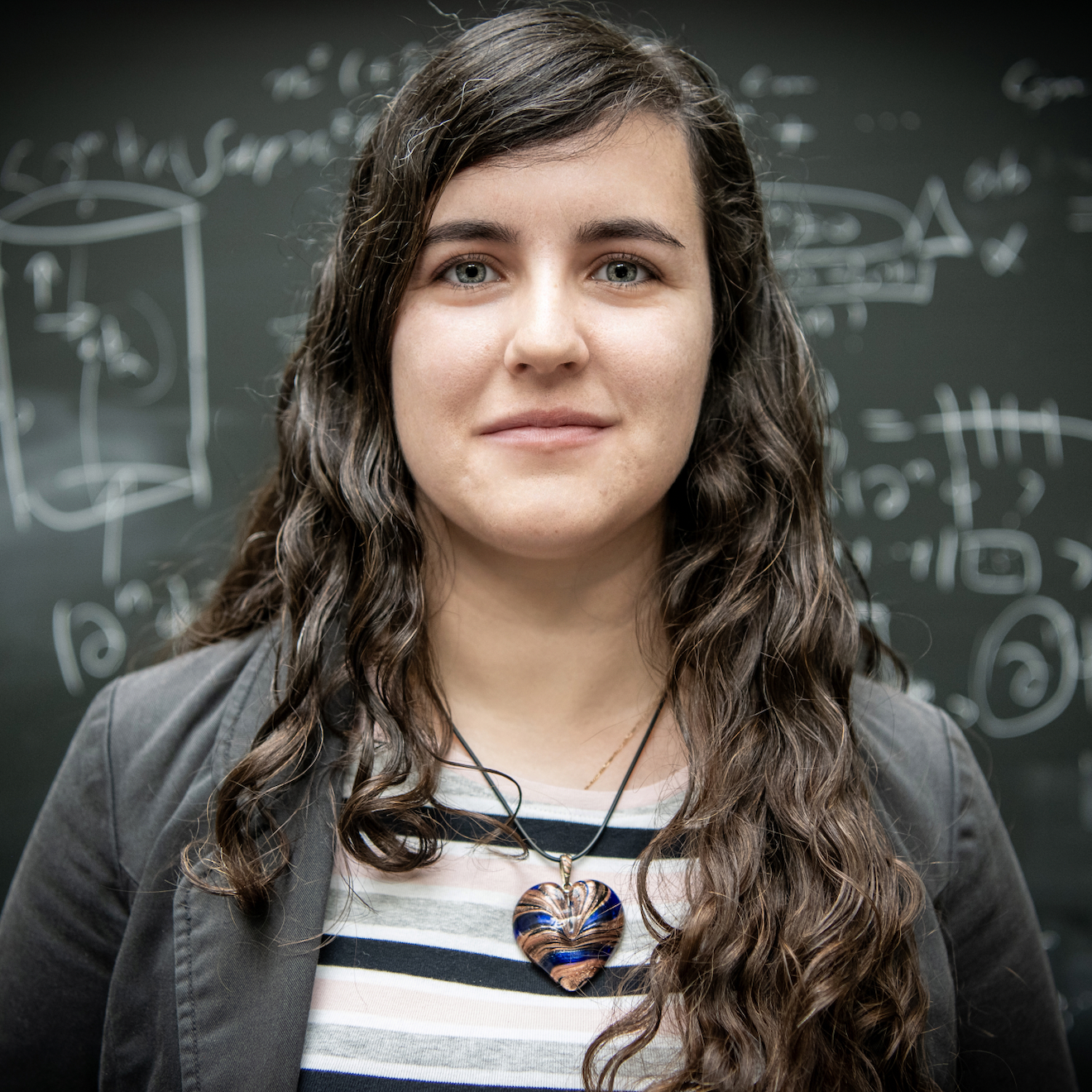
©2023 Perimeter Institute
Ángela Capel
(University of Cambridge)
Informazio kuantikoaren teorian eta fisika matematikan aditua.
Assistant Professor at University of Cambridge (Erresuma Batua), 2024tik. Forbes 30 under 30 Spain Xerrendako kidea 2023; eta Vicent Caselles Saria 2022. Junior Professor Universität Tübingen-ean (Alemania), 2021-2024. Simons Emmy Noether Fellow Perimeter Institute for Theoretical Physics-ean (Canada), 2023. MCQST Distinguished Postdoc Technische Universität München-ean (Alemania), 2020-2021. Doktoregoa Universidad Autónoma de Madrid-en (UAM), 2019, with Instituto de Ciencias Matemáticas-en (ICMAT) La Caixa-Severo Ochoa bekarekin; Máster en Matematicas y Aplicaciones UAMen, 2015; eta Licenciatura en Matemáticas Universidad de Granada-n, 2014.
Gorputz anitzetako sistema kuantiko irekien termalizazioa
A dissipative evolution of an open quantum many-body system weakly coupled to a thermal bath can be modelled by a quantum Markov semigroup, and its mixing time can be bounded using optimal constants of certain quantum functional inequalities, such as the modified logarithmic Sobolev constant. In this talk, we will review the mathematical formalism of dissipative evolutions governed by Lindbladians, and we will summarize the current state of the art on mixing times when the system has an associated commuting Hamiltonian.
MSC Kodigoak: 47N50; 39B62; 15A90
